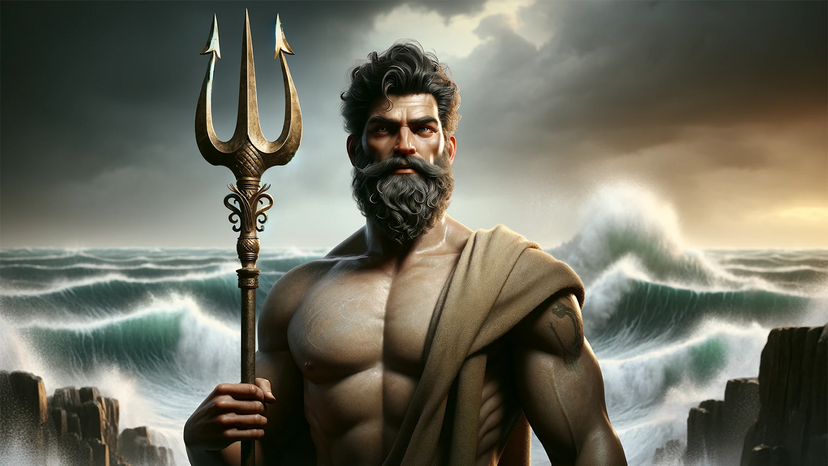Ancient times were a breeding ground for many myths and stories of heroes defeating savage creatures and Olympian gods dealing out divine retribution on other gods in the pantheon. The Aegean Sea was a vital setting for Greek legends, so inevitably, the sea god Poseidon played a key role in many myths.
1. The Founding of Athens
As one story goes, a capital city rose to prominence in ancient Greece, but it had no name or a patron deity to protect it. Poseidon and Athena, the patron goddess of wisdom and warfare, bickered about everything, so of course, this new shining city was a prize worth fighting for.
The citizens asked for a gift from each Greek god, with the best one winning patronage and naming rights. Poseidon, playing into the nickname "Earth Shaker," developed what he thought was a perfect plan. Poseidon struck his trident into the earth and created a saltwater spring that backfired in a flood.
Athena's gift of a magical olive tree planted atop the Acropolis was a more suitable gift for the people, so they decided to name the city Athens. Poseidon's honor was bruised, so he flooded the city further. Zeus intervened, and the sea god eventually yielded to the wishes of the people, returning to the sea.
2. Perseus and Medusa
One of Poseidon's epithets was his insatiable appetite for seduction. In one such story, he seduced a beautiful maiden in the temple of Athena. According to the Greek poet Hesiod, the outraged Athena cursed the maiden, turning her into a powerful sea monster before exiling her to a legendary island in the Aegean Sea.
Taking her malice a step further, Athena appeared to the Hero Perseus to guide his quest to kill Medusa. Athena offered Perseus her mirrorlike shield, a sword, Hades' helmet of invisibility and Hermes' winged sandals. Since one look from Medusa would turn the hero to stone, Perseus used the reflection from the shield and lopped off her head.
Although Poseidon played a minimal role in the story of Perseus and Medusa, his initial encounter with the creature in mortal form resulted in an unusual pregnancy. Once Perseus flew away with her head, Medusa's body gave birth to the giant Chrysaor and the majestic winged horse Pegasus.
3. The Trojan Horse
After a failed 10-year siege in response to Helen of Troy's leaving her Greek king husband for the Trojan prince Paris, the Greek forces were all but spent. Unable to surpass the city's impenetrable high walls and valiant defense forces, the Greeks were forced to devise a strategy to attack Troy from the inside.
Notable Greek legends like Achilles, Ajax and Odysseus were unable to conquer Troy by the sword, but a master carpenter named Epeius was able to do so with a hammer and some driftwood. He built a massive wooden horse as a sacrifice to the god Poseidon, and the Greek forces seemingly deserted the battle.
The Trojans celebrated their victory and brought the iconic work of art inside the gates, unaware of the Greek soldiers hidden inside. At night, the Greeks climbed out and opened the gates for Greek reinforcements, and charged into the city. Celebration turned to horror as the city was burned to the ground by morning.
